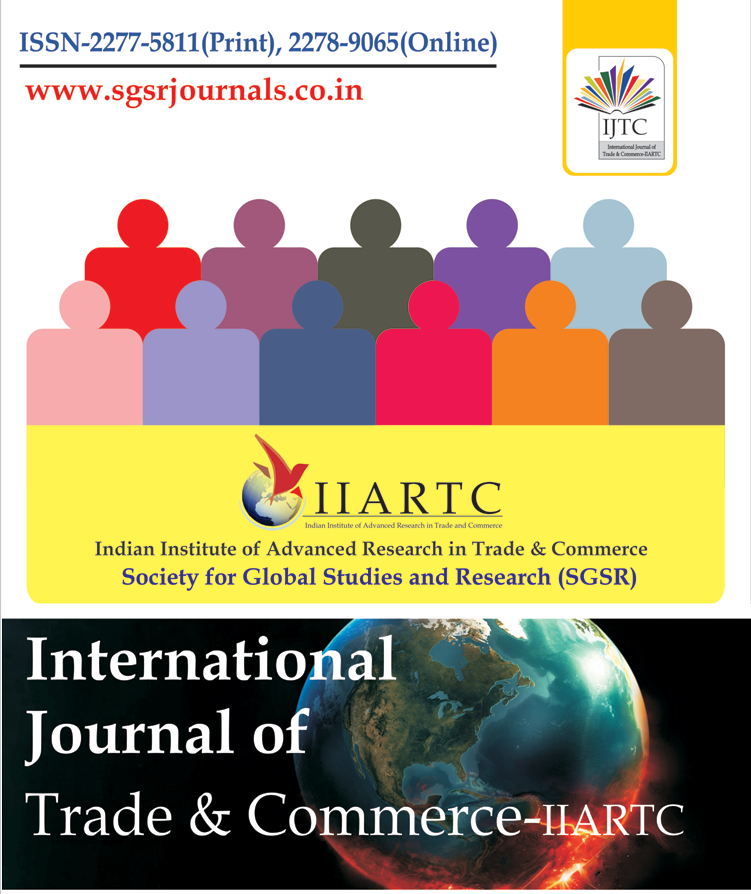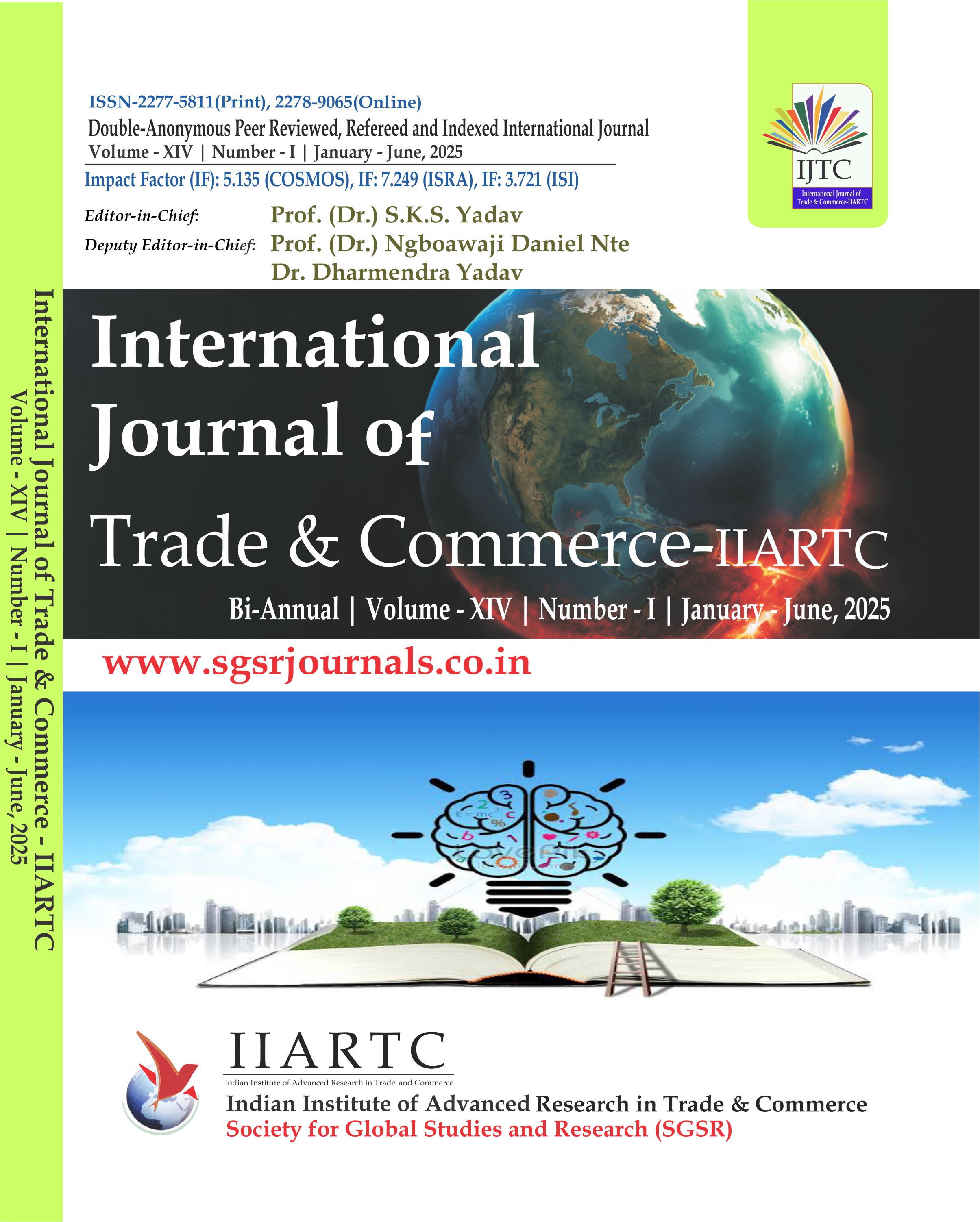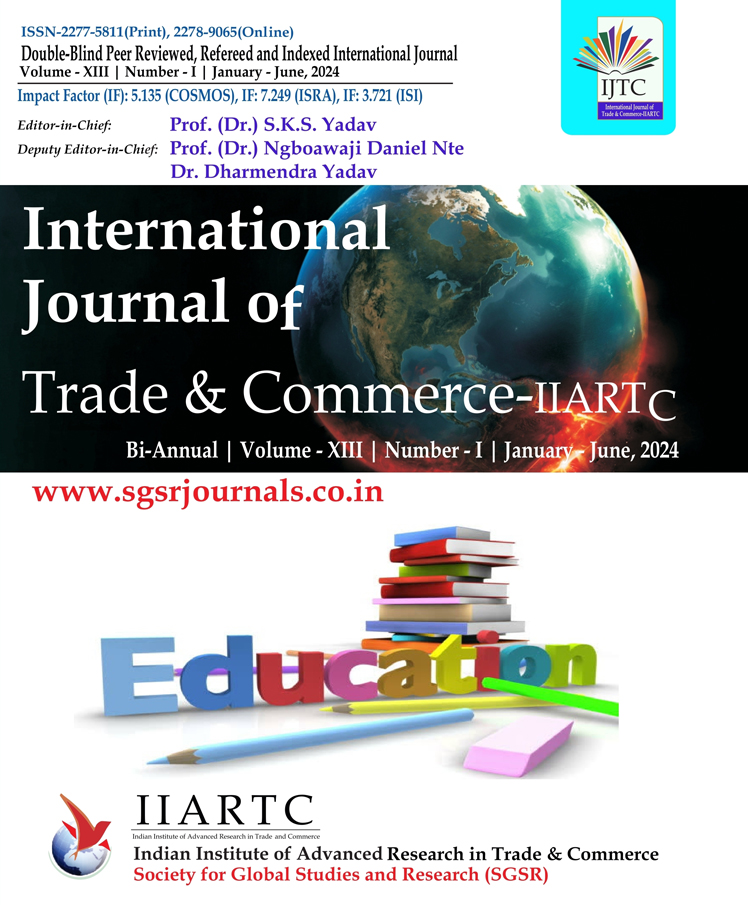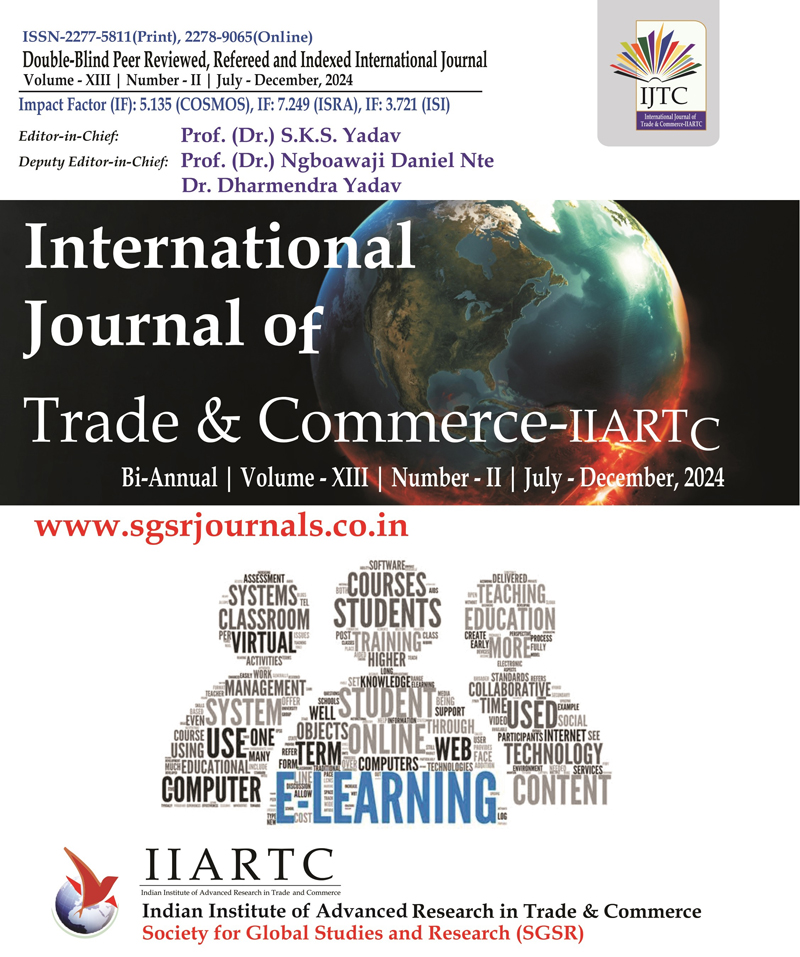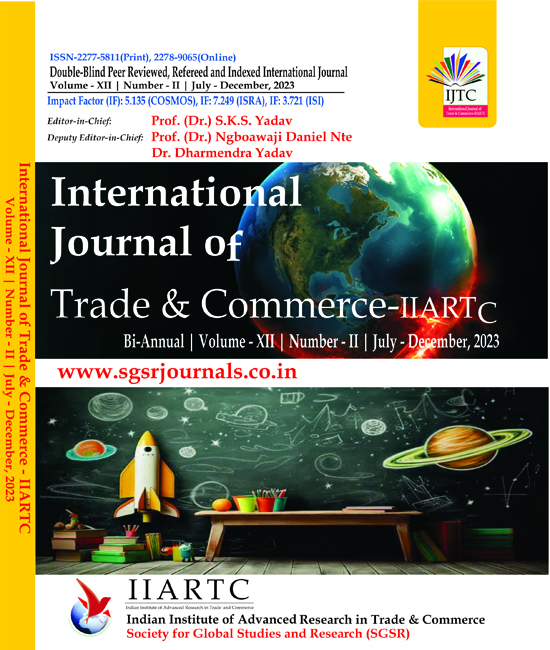
Commerce, Meerut College, Meerut

Dhaka School of Economics, Dhaka School of Economics

Faculty of Business Studies, Jagannath University Dhaka

,

Faculty of Technical Studies, Dt Kliment Ohridski Bitola Macedonea

Faculty of Management & Social Sciences, College of Management & Social Sciences Novena University
Abstract: The COVID-19 pandemic, which began as a global health crisis, quickly escalated into a far-reaching economic disruption, significantly impacting industries across the world. The Indian sugar industry—one of the country’s most critical agro-based sectors—was no exception. As a key contributor to rural livelihoods, employment, and the national economy, the industry found itself grappling with unprecedented challenges across its entire value chain. The impact was observed from the very first stage of sugarcane cultivation, which faced labor shortages and transportation issues, to the subsequent phases of processing and manufacturing, which suffered from reduced mill capacities and supply chain constraints. Ethanol production, a major revenue source through the Ethanol Blended Petrol (EBP) programme, experienced demand fluctuations tied to global oil market volatility. Moreover, marketing and export activities came to a near halt due to domestic lockdowns and international trade restrictions, resulting in inventory surpluses and financial stress across the sector. This study provides a comprehensive analysis of the multifaceted disruptions caused by the pandemic. It highlights the systemic vulnerabilities exposed during the crisis, the operational and financial challenges encountered by stakeholders—ranging from farmers to mill operators—and the mitigating measures undertaken by both the government and industry associations. In addition, the research proposes a strategic recovery roadmap focused on diversification, supply chain resilience, policy adaptability, and long-term sustainability. By exploring these dimensions, the study aims to contribute to the development of a more robust and crisis-resilient Indian sugar industry in the post-pandemic era.
Abstract: National Bank for Agriculture and Rural Development (NABARD) formed in 1982 on 12th July is India's leading agricultural finance and rural development institution. This paper critically examines NABARD's development, financing, and supervisory roles with particular reference to the operations of its organizational hierarchies. NABARD performs as a support system for rural banking organizations' refinancing, financial inclusion, financing infrastructure operations, and promoting capacity-building schemes such as Self-Help Groups (SHGs), Farmer Producer Organizations (FPOs), and Primary Agricultural Credit Societies (PACS). Its departments such as Financial Inclusion and Development, Infrastructure and Development, and Supervision allow NABARD to support rural credit infrastructure and policy adherence. This paper assesses the performance of NABARD in rural development, climate resilient farming, and inclusive growth. Imbalanced credit flow to regions, over-reliance on government support, weak digital connectivity, and congruence of youth training skills remain issues despite these advancements. Despite these issues, NABARD remains a powerful instrument of sustainable rural development and farm advancement in India. This paper thus concludes the relevance of policy reforms, technology adoption, and greater autonomy to improve NABARD's long-term performance.
Abstract: Eastern Region of India (ERI) is the inclusion of four states namely – Bihar, Jharkhand, Odisha, and West Bengal. It has 171040 villages with a vast quantity of rural population. It also includes several tribes in various areas. ERI also has forest resource with several products namely - fuelwood, fodder, edible nuts, herbs, flowers, seeds, leaves, bark, roots, tubers, lichen, honey etc. It has tradition of non-veg and veg cuisines. It is known for hand woven clothes. Jewellery, furniture, baskets, etc. handicraft products have attraction for people in rest of India. ERI is sea coast rich region. It owns much from marine activities. It has thousands of villages. For the socio-economic development of RURAL ERI, 8 Regional Rural Banks are established. These RRBs are the joint venture of central government, state government and scheduled banks. Main aim of these RRBs is rural development. These RRBs are shaping their aim with commitment. In the ERI, deposits, advances of RRBs are increasing continuously, NPA is lessening. RRBs in ERI are earning profit. ERI-RRBs are trying best to achieve the aim. This fact is certified by balance sheets, annual reports, and documents of RRBs, NABARD, RBI and State Governments. Primary cum secondary data and tools are used. Research provides useful conclusion and suggestions for the insight of policy makers. ERI scenario will change completely if conclusions and suggestions of research are implemented according to spirit.
Abstract: This study explores the role of Social Media Marketing Strategies (SMMSs) in promoting tourism in the Indian state of Uttarakhand. With the rise of digital platforms such as Instagram, Facebook, YouTube, and WhatsApp, social media has become a pivotal tool for destination branding, customer engagement, and tourism outreach. The research adopts a qualitative, descriptive design and relies solely on secondary data, including academic literature, government tourism reports, and digital platform analytics. The paper identifies key determinants of successful social media marketing in tourism content quality, user-generated content, influencer marketing, real-time engagement, and platform-specific strategies. Uttarakhand's current digital efforts are largely focused on basic visual content, with limited use of advanced engagement tools like Social CRM or influencer-led campaigns. It critically evaluates the current approach using a SWOT analysis framework and identifies both achievements and gaps in platform utilisation, content localisation, and targeted advertising. This evaluation provides detailed recommendations to improve digital outreach, including platform diversification, technological innovation, regional inclusion, and sustainable tourism promotion. The findings suggest that while Uttarakhand has made significant progress in digital tourism marketing, an integrated and adaptive strategy is essential to achieve long-term success in an increasingly competitive and dynamic tourism landscape. The research concludes by offering practical recommendations, including developing multilingual content, deeper influencer collaboration, improved feedback mechanisms, and benchmarking against digitally mature tourism states. These strategies can help Uttarakhand maximise its tourism potential by aligning digital marketing practices with evolving traveller behaviours.
Abstract: The COVID-19 pandemic, which began as a global health crisis, quickly escalated into a far-reaching economic disruption, significantly impacting industries across the world. The Indian sugar industry—one of the country’s most critical agro-based sectors—was no exception. As a key contributor to rural livelihoods, employment, and the national economy, the industry found itself grappling with unprecedented challenges across its entire value chain. The impact was observed from the very first stage of sugarcane cultivation, which faced labor shortages and transportation issues, to the subsequent phases of processing and manufacturing, which suffered from reduced mill capacities and supply chain constraints. Ethanol production, a major revenue source through the Ethanol Blended Petrol (EBP) programme, experienced demand fluctuations tied to global oil market volatility. Moreover, marketing and export activities came to a near halt due to domestic lockdowns and international trade restrictions, resulting in inventory surpluses and financial stress across the sector. This study provides a comprehensive analysis of the multifaceted disruptions caused by the pandemic. It highlights the systemic vulnerabilities exposed during the crisis, the operational and financial challenges encountered by stakeholders—ranging from farmers to mill operators—and the mitigating measures undertaken by both the government and industry associations. In addition, the research proposes a strategic recovery roadmap focused on diversification, supply chain resilience, policy adaptability, and long-term sustainability. By exploring these dimensions, the study aims to contribute to the development of a more robust and crisis-resilient Indian sugar industry in the post-pandemic era.
Abstract: Previous studies explain lots of insights on hotel management in terms of service quality, challenges, issues, and problems faced in the inns. However, there is a gap in bridging the strengths, weaknesses, opportunities, and threats of hotels common faces. This study addressed the gap by approaching the customer-centric viewpoint. The study looks to ascertain the strengths (S), weaknesses (W), opportunities (O), and threats (T) of the hotel management from a customer perspective and to find the connection among the hotel facilities and frequency of customer visits for staying. The results enlighten that there is significance between the hotel amenities, price affordability, and frequency of the visit of customers. Therefore, amenities consistently give guests a comfortable space to remain longer and foster a positive perception of the hotel. The research's results are restricted to the study region; they may vary over time and between regions. From a competitive perspective, service quality contributes to the hotels by increasing their strengths and opportunities and decreasing weaknesses and threats.
© sgsrjournals.co.in All Rights Reserved | Design by Sunrise Technologies

